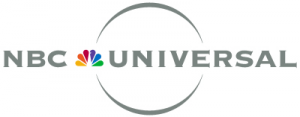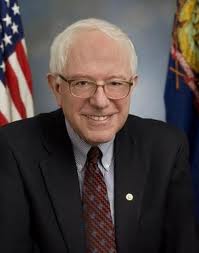
Does today's decision assure the birth of Comzilla, ready to destroy anything or anyone in its path, or is it the next colossal big media deal flop worthy of AOL-Time Warner?
The wedding of Comcast and NBC-Universal was given the blessings of two federal agencies today that all but seals the multi-billion dollar deal.
In a 4-1 decision, the Federal Communications Commission approved the merger. It’s chairman, Julius Genachowski, claimed it would ultimately be good for consumers as the company promised to add at least 1,000 hours of news and information programming and a new ultra-budget “lifeline” broadband tier priced at $9.95 per month for low-income families.
The lone dissenter, Democratic commissioner Michael Copps, rejected notions that a combined company the size of Comcast, which controls more than a quarter of all cable subscribers, and NBC-Universal, a major media company, would deliver anything to consumers.
“It’s too big. It’s too powerful. It’s too lacking in benefits for American consumers,” Copps said after the FCC vote to approve the merger. “And it continues us down a road of consolidation we’ve been on for a couple of decades now. And the most threatening part about it is that this is not just traditional media, but it’s new media, too. It touches just about every aspect of our media environment.”
National Public Radio’s ‘All Things Considered’ gave measured coverage to today’s Comcast-NBC merger developments, and how it will impact consumers. (3 minutes)
You must remain on this page to hear the clip, or you can download the clip and listen later.
<
p style=”text-align: center;”>
Indeed the combined Comcast-NBC will own or control one of every seven television channels and networks seen by Americans. Copps worries that kind of media concentration is sure to reduce diversity in programming and on-air voices.
Even worse, some analysts predict the merger could trigger a new wave of media consolidation as other players try to maintain their positions in the media marketplace. Second-place Time Warner Cable could begin looking for merger opportunities with smaller cable companies, such as Cox, for example.
Just about an hour after the FCC gave approval, the Justice Department and five states’ Attorney General announced a tentative settlement that could resolve concerns that the transaction was anti-competitive.
[flv width=”640″ height=”500″]http://www.phillipdampier.com/video/WNYW New York Comcast FCC Approval 1-18-11.flv[/flv]
WNYW-TV in New York reported on today’s merger decision and explained how Comcast customers, and online video fans, could be impacted. (3 minutes)
The Terms & Conditions
Two different federal agencies insisted on Comcast’s agreement to several terms and conditions before agreeing to the deal. Many of them presented no problem for Comcast, who had voluntarily agreed to several of them early on in negotiations. But the Justice Department delivered one of the strongest conditions, and a first for online video protection — it insisted the new combined entity of Comcast-NBC bow out of its voting rights in Hulu, the online video service.
√ No Playing Favorites: Comcast has to agree that if it carries its own news and business channels, it has to include competitors on the same tier.
Since Comcast-NBC has ownership interests in so many news, sports, and weather channels, making space for the competition was considered crucial by federal regulators. The cable company can’t bury its competitors in Channel Siberia, or stick them on “digital tiers” that are priced higher than standard cable service. Who wins? Bloomberg News, rarely found even by cable viewers who go looking, and the very low-rated Fox Business Channel, which can’t attract 30,000 viewers on a good day. Both will find prominent positions on Comcast Cable going forward, even if nobody watches.
√ Cheap Internet Access for Qualified Families: Comcast has agreed to provide a “lifeline” broadband service, but only for families pre-qualified by federal eligibility for free school lunches.
No word on what speeds these customers will receive, and Comcast estimates the program will barely make a dent in its bottom line. It is expected to reach only around 400,000 homes nationwide, and only as long as those subscribers remain eligible under federal guidelines. No free lunch for broadband.
√ Standalone Internet Service Must Be Provided: Comcast must sell at least a 6Mbps broadband plan without cable or telephone service for $49.99 a month for three years.
Since Comcast already routinely sells standalone broadband service to customers at around this price, this was hardly a concession. Comcast can still pile on extra fees, such as their overpriced cable modem rental, and any other charges that could be mandated by federal, state, or local government in the future. They can also keep their usage caps.
√ Comcast must agree to the FCC’s Homeopathic Net Neutrality Rules: Comcast has to agree to the FCC’s heavily-watered down definition of Net Neutrality… the ones Comcast itself suggested.
Since the FCC largely caved-in to Big Telecom’s lobbying against Net Neutrality, Comcast’s agreement to adhere to what the FCC calls Net Neutrality won’t present any problems, because those terms were similar to what Comcast had asked for all along. Their “digital phone” service is exempted, which means Comcast can “manage” competing Voice Over IP services at its pleasure.
√ Evidence That PBS Has A Lobbyist, Too — Special Favors for Public Broadcasting: Public television stations win carriage protection from Comcast “for several years.”
In an effort to free spectrum, PBS stations could be pressured to give back some channels or reduce their transmitter power to free up UHF frequencies for more wireless broadband. Should this happen, Comcast has agreed to keep those stations on their cable systems as if nothing changed at all. It assures stations that even if their broadcast coverage areas are reduced, their cable carriage will stay the same.
√ Binding Arbitration Comes to Buyers of Comcast-owned Networks: If a cable system or other provider runs into trouble getting an agreement with Comcast, the FCC offers help.
To protect other cable systems, telco-TV, and satellite companies from uncompetitive pricing or access blockades to Comcast-controlled networks, the cable company agrees to come to the table and submit to binding arbitration over carriage disputes. Unfortunately for Comcast subscribers, the cable giant can’t force broadcasters or other cable networks to the same table to settle their own carriage wars.
√ Online Access to Programming Comes to Existing Players, Unless Something Big Changes: Everyone loves the status-quo, and this agreement assures it.
The Department of Justice provisions protecting access to online video programming were carefully crafted by lawyers with one eye on Washington and the other on Wall Street. It effectively provides “stability” in the marketplace and avoids the kinds of competitive surprises Wall Street hates. Effectively, the agreement grants access to Comcast-owned programming to ventures that existed prior to the agreement reached today. Existing players have the government’s assurance carriage contracts are secure. Those with a pre-existing relationship to Comcast can also purchase the entire bouquet of Comcast-controlled programming (no a-la-carte) at prices similar to those charged to other cable and satellite customers.
But brand new players that threaten to turn existing business models on their heads? Forget it. The agreement says nothing that would require access to Comcast programming for upstart services like ivi, or even Google TV for that matter. The only potential, real-world competitive scenario comes if an existing player (say Time Warner Cable, Verizon FiOS, or AT&T U-verse) decided to start a national virtual online cable company open to any American, anywhere. What are the chances of that happening? How many of you can choose Time Warner -or- Comcast? Verizon FiOS -or- AT&T U-verse? Would AT&T risk its U-verse revenue selling Time Warner Cable customers the same channel lineup, knowing it can’t also easily bundle broadband and phone packages with it?
√ No Voting Rights for Hulu: Comcast agrees to limit its role in one of the biggest potential reasons some consumers are prepared to cut cable’s cord.
The Justice Department’s requirement that Comcast effectively butt-out of the day to day decisions affecting Hulu may protect consumers, but Hulu’s partners don’t want to devalue their programming by giving it away for free forever, either. Nothing prohibits the birds-of-a-feather-partners in Hulu to put the service under a full ad load or behind a pay wall, reducing its value and interest to consumers. Or, the whole project could be terminated at the behest of News Corp. and Disney.
Whatever consumer protections the FCC and Justice have included, they won’t last forever. Virtually all expire within three to seven years, at which point Comcast might be humbled by the culmination of a bad business decision the likes of AOL-Time Warner, or become Comzilla, ready to trample its competition (and consumers) into the dirt.
Was This a Commission Cave-In or a Foregone Conclusion?
Although Commissioner Copps calls today’s decision a “dangerous” deal, some ex-regulators suggest the package presented to federal regulators was effectively a foregone conclusion.
Bruce Gottlieb was formerly Chief Counsel of the Federal Communications Commission, and offered his take on today’s developments for The Atlantic:
How mergers at the FCC will play out is notoriously hard to predict, but the ultimate result is not. The historical truth is that, in virtually every instance, the commission will approve any major proposed transaction. The only time in recent memory that the commission declined to do so was the proposed merger of the two leading satellite-TV providers (Echostar and DirecTV) — and that marriage was running into problems with other agencies long before the FCC put the final nail in the coffin.
(Yes, then-Chairman Reed Hundt also famously ended rumors of an AT&T and Southwestern Bell merger in 1997 by preemptively declaring it “unthinkable.” But those companies simply had to wait until 2005, when a different FCC chairman let it go through.)
The real action at the FCC involves what “conditions” the agency will put on a merger. These are supposed to be narrowly tailored to address specific harms raised by the merger at issue. But, regardless of who is in charge at the agency, it’s all relative.
Often, the conditions applied to a particular merger have more to do with what the chairman and commissioners at the time want to achieve on an industrywide basis. It’s just easier to get these things done when you have the extraordinary leverage of controlling the timing of a multibillion-dollar transaction that the parties are desperate to consummate.
[…] The FCC’s rules, as described in the press release announcing the merger, appear to be aimed at ensuring that “over the top” providers have fair access to programming (which the NBCU part of Comcast-NBCU will provide), as well as to consumers (which the Comcast part of Comcast-NBCU will provide).
This is, by far, the strongest statement yet from the commission about the importance of over the top video competition. But the business and regulatory stakes in this fight are only going to increase over time. Indeed, the two Republican commissioners (Robert McDowell and Meredith Attwell Baker) issued separate statements saying they have concerns over whether the FCC should be writing rules to encourage over the top video. So this is likely to be the first skirmish in what will surely be a long and bloody war.
In the weeks ahead, the lawyers will be able to parse the specific provisions to see where the loopholes are and how it will all play out in practice. The details surely matter. But years from now, the specifics of what was decided in this merger may mean a lot less than the fact that the FCC is now deeply involved in the multifront war to decide who will win online video.
[flv width=”512″ height=”308″]http://www.phillipdampier.com/video/PBS Newshour Comcast Merger Announced 12-3-09.mp4[/flv]
More than a year ago, PBS’ ‘The Newshour’ explored the reasons why Comcast and NBC-Universal would want to join forces. Now, after millions of dollars of Comcast subscribers’ money has been spent lobbying for approval, will consumers ultimately pay an even higher price later on? (12/3/2009 — 11 minutes)


 Subscribe
Subscribe




